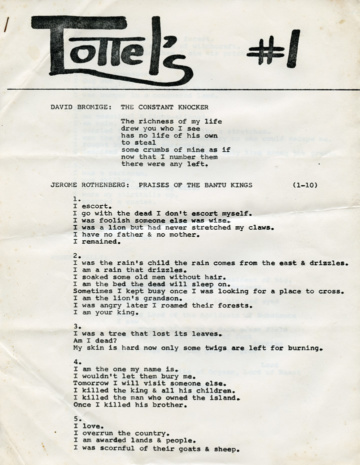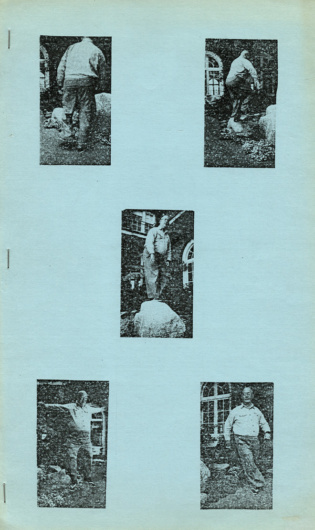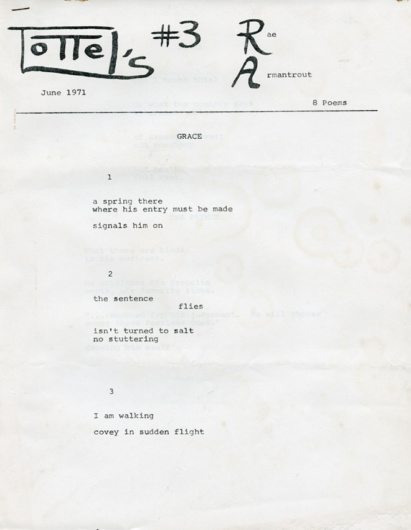Tottel’s
Ron Silliman
Oakland and San Francisco
Nos. 1–18 (1970–81)
Tottel’s 1 [1970].

Named after the first anthology of English poetry, Tottel’s Miscellany of 1557, Ron Silliman’s mimeo Tottel’s published mostly controversial and always innovative work. In each of eighteen issues, with contributors including Bruce Andrews, Rae Armantrout, Clark Coolidge, Ray DiPalma, Larry Eigner, David Gitin, Robert Grenier, David Melnick, and Thomas Meyer, Silliman printed the most radically disjunctive work he could find. One of the original San Francisco language poets, he seemed driven by his own catholic and authentic background to organize (he has been a prison and tenants rights organizer, editor of the Socialist Review, a lobbyist, and teacher). Silliman’s biographical statement in Michael Lally’s anthology None of the Above: New Poets of the U.S.A. (1976) can serve as a good introduction to Tottel’s: “I started out as a conventional writer of lyrical poems, but, as the forms I’d inherited, common to any writer circa ’65/’66, had no more reason or meaning for their existence than conformity & habit, I became quickly frustrated & bored. I wanted something more than a half-art.

Tottel’s 17 (1978). On the cover, “Philip Whalen models ‘Fat Pants’ made by Alaya Stitchery.”
The pseudo-formalist approach of the post-Projective writers, with which I experimented for a time, offered no real solution. At best, the equation of the page to ‘scored speech’ was a rough metaphor & it excluded more of the world than it could bring in…. Thus when Coolidge & then Grenier extended the definition of language beyond discourse, it seemed that a reinvestigation of the whole act of writing was not only possible, but necessary. Any other tendency now is mere decoration.” Silliman has published an influential collection of essays, The New Sentence (1987), and edited a defining anthology of language writing, In the American Tree (1986). Two of his own volumes, Ketjak (1978) and Tjanting (1981), are widely respected for their radical experimentation and lively rebelliousness. He has taken as his literary mothers Gertrude Stein and Laura Riding, which helps explain his conflation of politics and poetics: “poetics must be concerned with the process by which writing is organized politically into literature” and “there can be no such thing as a formal problem in poetry which is not a social one as well.”

Tottel’s 3 (June 1971).
Resource
Scans of the complete run of Tottel’s are available on the Eclipse website.
